The Sex Talks: 10 Tips to Help Parents Talk to Kids about Sex
 I know. This is not easy. The very idea of having to talk to your child about sex is making you squeamish, squirmish and squirrelly. But we can do this. And I have to tell you– it’s not as bad as you think.
I know. This is not easy. The very idea of having to talk to your child about sex is making you squeamish, squirmish and squirrelly. But we can do this. And I have to tell you– it’s not as bad as you think.
Here are some key tips for parents who know that it is time to talk to kids about sex:
(1) Talk early and often: It’s never “THE talk” or “one talk” but a series of big and little ones that you have over time starting when they are very little. The first talks are about their body parts, caring for their body parts and loving each body part! And yes, you’ll build on these foundational talks- don’t avoid it and don’t make it weird! There’s nothing to be embarrassed about!
(2) Use the actual words: Just like we call an “arm” and “arm” and not a “Little llama,” refer to a penis as a penis and a vagina as a vagina. There is nothing wrong with these words and we don’t want to send the message that there is! Plus, it will make it much easier to discuss the mechanics of sex later- you don’t want to be talking about intercourse like “the peepee goes into the women’s lady bits” because that will cause confusion and it frankly doesn’t sound right at all. (We talk about this in more depth in the interview with Dina Alexander and with Bonnie J. Rough)
(3) Be the trusted source: Seriously, who do you want talking to your child about sex- you, or that kid, Barnabee, in the back of the bus who overheard something in some movie? Kids are hearing about sex in elementary school. By age 11, most kids have been exposed to porn. Make sure you talk early and often so you get to educate your kid with your values and the right information or you might have to unravel the wrong information! And DON’T tell your child s/he’s too young to know- they’ll just find out from somebody else (or the internet- you definitely don’t want that).
(4) Be ready! This conversation doesn’t happen when you schedule it (what conversation does?). So you might be putting your daughter to bed and a question about nipples becomes a full-fledged segway into intercourse. A report on something your child heard on the school bus about how babies really came to be might come up over “pass the potatoes.” And family movies, seeing a pregnant woman, witnessing breast-feeding, a school video on puberty- are all springboards for discussion around “how babies are made.” If they’re asking; be ready to tell. Ask them what they already know (to dispel myths or build upon knowledge). Be ready to put on your big boy and big boy pants, take a deep breath and say things like; “the man’s penis goes into the vagina,” “erection,” “lubrication,” “ejaculation,” “testicles,” “clitoris,” if the child is asking about exactly how baby-making works.
(5) Don’t shame body exploration: Totally normal, folks! The body is amazing! Our kids need to know their bodies. Get your daughter a mirror so she can look at her amazing vagina! According to sex therapist, Dae Sheridan, interviewed on How to Talk to Kids about Anything, most girls don’t even know they have 3 holes down there. Let your boys and girls touch themselves- and simply give guidance that body exploration is private and not something you do in public. As your children get older, you don’t want them to have any shame around masturbation, contrary to how you might have grown up, it is not a shameful thing to do—and is a totally normal part of sexuality.
(6) Be age-appropriate and follow the child’s lead: A young child may only want to know about the sperm and the egg while an older child may want to know more about how to egg and the sperm get together. Oversharing when a child isn’t ready doesn’t feel good for anyone so don’t answer more than what they are asking. Undersharing doesn’t feel good either so make sure you are answering the question and not changing the subject to “what’s for dinner?” Leave the door open to answer any others whenever s/he is ready. They’ll let you know. (And you WANT your child to ask YOU questions—about this and about ANYTHING).
(7) Discuss consent: This, again, can start early. We each get to say whether we want to be touched and how we want to be touched. We get to say if we want to be hugged or kissed and if we’d rather have some alone time. And we need to listen to the wishes and boundaries of others as well. (See my interview with Richard Weissbourd and Peggy Orenstein).
(8) Tell them that sex is more than just mechanics and for procreation: Because it is. Sex is a way to connect. It’s an adult way to show love, passion, playfulness, generosity, warmth and affection. You can explain to your children that; “When you find the right person who truly loves and respects you for who you are and who you truly care about and love for who they are, sex can be beautiful and amazing.” (The opposite is true too- the wrong person who could care less about you- sex is no bueno.)
(9) Nervous? Practice! Say it to yourself in front of a mirror, say it to your spouse, the wall or a willing friend or bookclubber! When you practice talking about sex, it’s much easier to actually talk about it when you need to have the conversations.
(10) There are larger conversations to have: Your children may ask about other ways babies come into our lives- and you can get into discussions about IVF, adoption, surrogacy and more. And, especially if your child identifies with being in the LGBTQ community- you don’t get a pass if you are straight and your child is gay, by the way- you must talk about sex with same-sex partners. If you don’t know the answers, ask someone who does. If you don’t have this conversation with your child who identifies with being in the LGBTQ community, they will get their information elsewhere (likely not a trusted source) and they will likely feel alone and confused.
Need resources? Listen to these podcast episodes we’ve done on the topic of talking to kids about sex:
How to Talk to Kids about Sex with Dina Alexander
How to talk to Kids about Sex, Love & Equality with Bonnie J. Rough
How to Talk to Kids about Healthy, Caring, Romantic Relationships with Richard Weissbourd
How to Talk to Boys about Sex with Peggy Orenstein
How to Talk to Kids about Porn with Gail Dines
How to Talk to Kids about Sexual Assault with Dae Sheridan
To come: How to Talk to Boys about Puberty, Sex, Body Image & Growing Up with Cara Natterson
Thinking of you, my friend! You can do it!
Warm regards,
Dr. Robyn

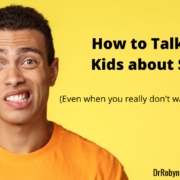

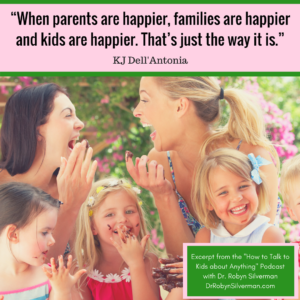
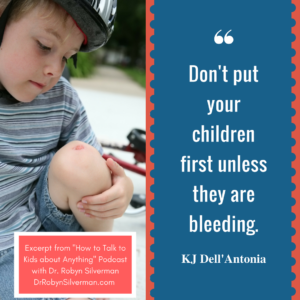 NOW– Want to know exactly what to do? I interviewed New York Times contributing editor and columnist (remember Motherlode?), KJ Dell’Antonia about her forthcoming book, How to Be a Happier Parent, and we discussed some things we have to stop doing and some things we need to start doing to ensure our happiness. She says some controversial things like “don’t put your children first unless they are bleeding” which may make you dig your heals in and question how what she is saying applies to you- but it’s kind of like the whole airplane directive (put your own mask on first before assisting others).
NOW– Want to know exactly what to do? I interviewed New York Times contributing editor and columnist (remember Motherlode?), KJ Dell’Antonia about her forthcoming book, How to Be a Happier Parent, and we discussed some things we have to stop doing and some things we need to start doing to ensure our happiness. She says some controversial things like “don’t put your children first unless they are bleeding” which may make you dig your heals in and question how what she is saying applies to you- but it’s kind of like the whole airplane directive (put your own mask on first before assisting others).
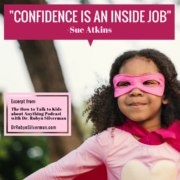
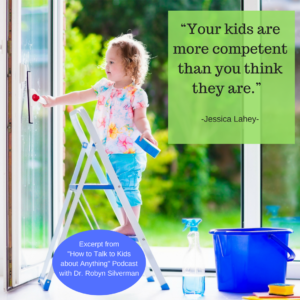 as the same disco ball hung from the middle of the ceiling and remnants of the light up board that used to direct us to “all skate” or “couples only,” I was also a little bit anxious. This was my son’s first time roller skating and he can sometimes have an ugly tape inside his head telling him he can’t do something even before he starts. Do you have anyone in your life that gets that?
as the same disco ball hung from the middle of the ceiling and remnants of the light up board that used to direct us to “all skate” or “couples only,” I was also a little bit anxious. This was my son’s first time roller skating and he can sometimes have an ugly tape inside his head telling him he can’t do something even before he starts. Do you have anyone in your life that gets that?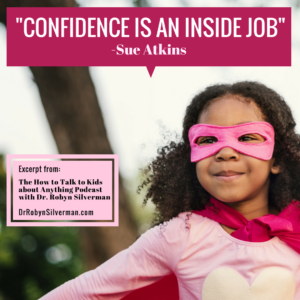 It can be hard to let go. But even before that, it can be hard to slowly transition from taking the lead to allowing your child to do so. And yet, this is one of the key ways that they gain confidence. Self-reliance and taking healthy risks allow a child to learn to trust him or herself. To get up when they fall. And they will. And though it’s hard, we will grin and bear it as they gain the grit to bear it themselves.
It can be hard to let go. But even before that, it can be hard to slowly transition from taking the lead to allowing your child to do so. And yet, this is one of the key ways that they gain confidence. Self-reliance and taking healthy risks allow a child to learn to trust him or herself. To get up when they fall. And they will. And though it’s hard, we will grin and bear it as they gain the grit to bear it themselves.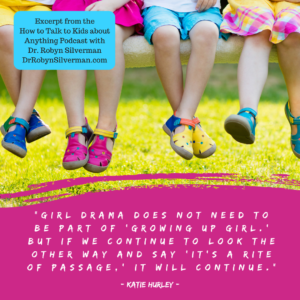 Girls
Girls
